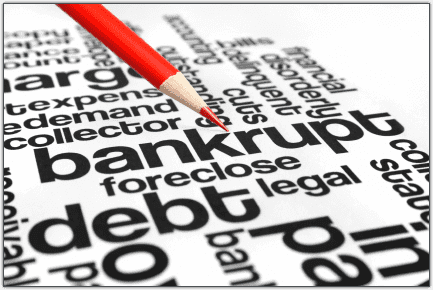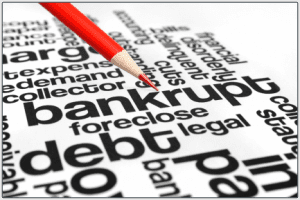we have answers.
While bankruptcy doesn’t directly affect your employment, it may have consequences if you hold any licences or qualifications.
There’s no definitive across-the-board answer. It depends on your circumstances. For example, if you become bankrupt you’re not allowed to hold certain licences, including:
- building licences
- property management licences
- liquor licences
- financial brokerage licences.
However, you may continue to operate under some licences with restrictions, such as:
- legal practising certificates
- contracting licences.
Confusing, isn’t it?
To help you advise your clients we’ve created this guide outlining the implications of bankruptcy for some of the more common professions and trades.
But remember, it’s just a guide. Licencing requirements can change, so it’s important to find out the current requirements from the relevant professional/licencing bodies.
Case #1: Licenced Builders
If you’re declared bankrupt, you need to cancel your building licence.
Steps you need to take
You must stop all residential building works immediately, advise your clients that your licence has been cancelled, and return all money and payments for work you are unable to complete. You must also advise your clients to contact the home warranty insurer on the certificate of insurance you gave them when the building contract was accepted.
You must hand in your license card to the Home Building Service, Government Access Centre or Fair Trading Centre. If you can’t return the card, you must provide a statutory declaration explaining why. Failure to return your licence can result in fines up to $2,200 for individuals and $4,400 for companies.
Case #2: Contractor licence holders – includes electricians and plumbers
If you hold a contractor licence (e.g. you’re a plumber, electrician, bricklayer or carpenters), you may be able to continue restricted trade under the licence.
Steps you need to take
You must notify the Department of Fair Trading of bankruptcy immediately. They will then ask you to provide additional information, which they may use to decide whether your licence will be cancelled.
If they let you keep your licence, it will carry a condition of “only for contracts not exceeding $20,000”. If however your licence is cancelled, you must follow the same process as licenced builders.
Case #3: Business Operators
If you’re an owner, partner or director of a registered business, you must notify the Australian Securities & Investments Commission (ASIC) of your personal bankruptcy or insolvency. What happens next will depend on the type of business you’re running, reporting obligations and licencing restrictions.
Case #4: Directors and Managers of Companies
When you declare that you’re bankrupt or entering into a personal insolvency agreement, you will no longer be an officeholder of the company.
Steps you need to take
You must lodge a Form 296 Notice of disqualification from managing a corporation with ASIC.
The company can appoint your replacement by lodging a Form 484 Change to company details within 28 days. Any remaining officeholders must sign Form 484. However, if there are no remaining officeholders, company members can appoint a replacement director.
It’s an offence for you to continue managing a corporation without leave of the Court, and you may be fined up to $5,500 or imprisoned for up to a year.
Case #5: Real Estate Industry
If you’re facing bankruptcy, you may have your licence cancelled if you’re a:
- real estate agent
- sales person or registered manager
- strata management agent
- conveyancer
- property valuer
Under s16(1A) of the Property, Stock and Business Agents Act 2002 (NSW), a person who is currently (or has been in the preceding 3 years) an undischarged bankrupt is a disqualified person.
The only exception to this is if the Director-General is satisfied you took all reasonable steps to avoid bankruptcy. In this case, you may be in a position to keep your licence.
Steps you need to take
You need to notify the Department of Fair Trading of your bankruptcy status. You should then gather documentation to show the Director-General you took all reasonable steps to avoid bankruptcy when financial difficulty first began to manifest.
Case #6: Financial Services Licence
If you hold an Australian Financial Services licence and declare bankruptcy, your licence may be cancelled.
Why? Because it may impact your ability to satisfy the ‘fit and proper person’ test required to hold such a licence.
Steps you need to take
You should notify ASIC of your bankruptcy immediately.
Case #7: Legal practitioners
Legal practitioners must satisfy the ‘fit and proper person’ test to continue to practise. ‘Show cause’ events such as bankruptcy and other forms of insolvency must be disclosed to the Law Society within seven days.
Steps you need to take
You must send a Notice of show cause event form to the Professional Standards Department at the Law Society, accompanied with relevant documentation. You must also send a statement to the Law Society Within 28 days of being declared bankrupt that justifies why you are a fit and proper person despite your circumstances.
The Law Society Council will investigate the matter and determine if you are a fit and proper person who may hold a Practising Certificate, and whether restrictions on practise may be imposed.
If you are approved to continue practicing, you may have to submit a bankruptcy undertaking stating you will not:
- operate any trust account or controlled money account
- commence or continue to act as a trustee of any real or personal property
- commence or continue to act in the office of executor or administrator of a deceased person’s estate
- engage in any activity you are disqualified from under any Federal or New South Wales law.
- Talk to your trustee about personal insolvency options, and consider alternatives to bankruptcy that could have minimal consequences for your licence.
- Contact the relevant licencing office to provide notification of your bankruptcy.
- Consider any statutory obligations you may have to other bodies.
- Take stock of assets you need to use in your work. You can keep:
- tools of your trade to the value of $3,600
- a motor vehicle to the value of $7,350 or less
- goods on hire purchase or lease if not subject to a bill of sale.
The Bankruptcy Act and Regulations contain a number of thresholds, limits and other amounts that are regularly indexed (changed in line with the Consumer Price Index or the base pension rate). These amounts are current as at 23 October 2013.
As you can see, for most licences you’re obligated to notify appropriate bodies of bankruptcy. If you don’t you could face heavy penalties, whether the licence is cancelled or not.
So it pays to be informed.
Review the potential impact that declaring bankruptcy may have on your employment situation. Always get advice from a qualified bankruptcy trustee about the options you have in dealing with financial difficulty.
With the right moves, you can avoid unnecessary pain, penalties and problems.



